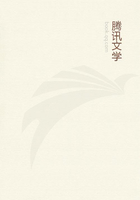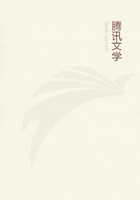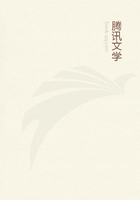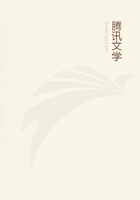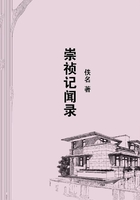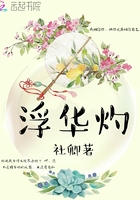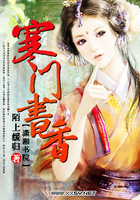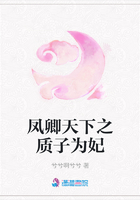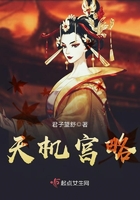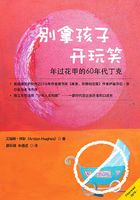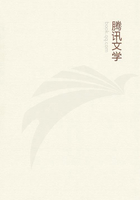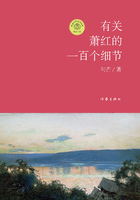"EOTHEN" appeared in 1844. Twice, Kinglake tells us, he had essayed the story of his travels, twice abandoned it under a sense of strong disinclination to write. A third attempt was induced by an entreaty from his friend Eliot Warburton, himself projecting an Eastern tour; and to Warburton in a characteristic preface the narrative is addressed. The book, when finished, went the round of the London market without finding a publisher. It was offered to John Murray, who cited his refusal of it as the great blunder of his professional life, consoling himself with the thought that his father had equally lacked foresight thirty years before in declining the "Rejected Addresses"; he secured the copyright later on. It was published in the end by a personal friend, Ollivier, of Pall Mall, Kinglake paying 50 pounds to cover risk of loss; even worse terms than were obtained by Warburton two years afterwards from Colburn, who owned in the fifties to having cleared 6,000 pounds by "The Crescent and the Cross." The volume was an octavo of 418 pages; the curious folding-plate which forms the frontispiece was drawn and coloured by the author, and was compared by the critics to a tea-tray. In front is Moostapha the Tatar; the two foremost figures in the rear stand for accomplished Mysseri, whom Kinglake was delighted to recognize long afterwards as a flourishing hotel keeper in Constantinople, and Steel, the Yorkshire servant, in his striped pantry jacket, "looking out for gentlemen's seats." Behind are "Methley," Lord Pollington, in a broad-brimmed hat, and the booted leg of Kinglake, who modestly hid his figure by a tree, but exposed his foot, of which he was very proud. Of the other characters, "Our Lady of Bitterness" was Mrs. Procter, "Carrigaholt" was Henry Stuart Burton of Carrigaholt, County Clare. Here and there are allusions, obvious at the time, now needing a scholiast, which have not in any of the reprints been explained. In their ride through the Balkans they talked of old Eton days. "We bullied Keate, and scoffed at Larrey Miller and Okes; werode along loudly laughing, and talked to the grave Servian forest as though it were the Brocas clump." Keate requires no interpreter; Okes was an Eton tutor, afterwards Provost of King's. Larrey or Laurie Miller was an old tailor in Keate's Lane who used to sit on his open shop-board, facing the street, a mark for the compliments of passing boys; as frolicsome youngsters in the days of Addison and Steele, as High School lads in the days of Walter Scott, were accustomed to "smoke the cobler." The Brocas was a meadow sacred to badger- baiting and cat-hunts. The badgers were kept by a certain Jemmy Flowers, who charged sixpence for each "draw"; Puss was turned out of a bag and chased by dogs, her chance being to reach and climb a group of trees near the river, known as the "Brocas Clump." Of the quotations, "a Yorkshireman hippodamoio" (p. 35) is, I am told, an OBITER DICTUM of Sir Francis Doyle. "Striving to attain," etc. (p. 33), is taken not quite correctly from Tennyson's "Timbuctoo." Our crew were "a solemn company" (p. 57) is probably a reminiscence of "we were a gallant company" in "The Siege of Corinth." For "'the own armchair' of our Lyrist's 'Sweet Lady'" Anne'" (p. 161) see the poem, "My own arm- chair" in Barry Cornwall's "English Lyrics." "Proud Marie of Anjou" (p. 96) and "single-sin - " (p. 121), are unintelligible; a friend once asked Kinglake to explain the former, but received for answer, "Oh! that is a private thing." It may, however, have been a pet name for little Marie de Viry, Procter's niece, and the CHERE AMIE of his verse, whom Eothen must have met often at his friend's house. The St. Simonians of p. 83 were the disciples of Comte de St. Simon, a Parisian reformer in the latter part of the eighteenth century, who endeavoured to establish a social republic based on capacity and labour. Pere Enfantin was his disciple. The "mystic mother" was a female Messiah, expected to become the parent of a new Saviour. "Sir Robert once said a good thing" (p. 93), refers possibly to Sir Robert Peel, not famous for epigram, whose one good thing is said to have been bestowed upon a friend before Croker's portrait in the Academy. "Wonderful likeness," said the friend, "it gives the very quiver of the mouth." "Yes," said Sir Robert, "and the arrow coming out of it." Orit may mean Sir Robert Inglis, Peel's successor at Oxford, more noted for his genial kindness and for the perpetual bouquet in his buttonhole at a date when such ornaments were not worn, than for capacity to conceive and say good things. In some mischievous lines describing the Oxford election where Inglis supplanted Peel, Macaulay wrote"And then said all the Doctors sitting in the Divinity School, Not this man, but Sir Robert' - now Sir Robert was a fool."But in the fifth and later editions Kinglake altered it to "SirJohn."By a curious oversight in the first two editions (p. 41) JOVE was made to gaze on Troy from Samothrace; it was rightly altered to Neptune in the third; and "eagle eye of Jove" in the following sentence was replaced by "dread Commoter of our globe." The phrase "a natural Chiffney-bit" (p. 109), I have found unintelligible to- day through lapse of time even to professional equestrians and stable-keepers. Samuel Chiffney, a famous rider and trainer, was born in 1753, and won the Derby on Skyscraper in 1789. He managed the Prince of Wales's stud, was the subject of discreditable insinuations, and was called before the Jockey Club. Nothing was proved against him, but in consequence of the FRACAS the Prince severed his connection with the Club and sold his horses. Chiffney invented a bit named after him; a curb with two snaffles, which gave a stronger bearing on the sides of a horse's mouth. His rule in racing was to keep a slack rein and to ride a waiting race, not calling on his horse till near the end. His son Samuel, who followed him, observed the same plan; from its frequent success the term "Chiffney rush" became proverbial. In his ride through the desert (p.
同类推荐
热门推荐
寒门书香
她是怎么死的?真心不知道,只记得昨晚看书又看到很晚很晚,结果醒来就来个世界大变样?她明明是坐在软软的沙发椅上,怎么醒来就是躺在硬硬的木板床上?她记得她家的床明明是席梦思啊!“姐姐,你醒了?”八九岁的小少年,瘦弱不堪,但勉强能看出来,是一个小正太,这这这又是怎么回事?她是家中独女,没有弟弟啊!在现代,她的父母忙着生意,常年出差,所幸她对亲情亦没有什么期待,唯一喜好的便是看书,任何种类的书,她都喜欢看。或许是小时候游黄山看日出时,那诡异的一幕,竟然让她有了强悍的记忆力,虽没有达到过目不忘,亦不远矣!还记得那时,她站在黄山顶上,日出之时,金光闪耀,她竟然感觉有一束蓝色的光穿透进了她的身体,自此她的身体变得特别好,记忆力也变得强悍无比。只是,这么好的身体,怎么会死于非命?看样子还是穿越了?带着个瘦弱不堪的弟弟讨生活?她真想怒骂一句:他奶奶的她真的不想穿啊!她很满意在现代吃吃睡睡看看书写写字的生活啊!她不奢望亲情所以您不用弄个弟弟过来让我体验一把亲情是何物呀!老天,你瞎了眼了么?别拿孩子开玩笑
这本书的目的是希望所有的女性,不管她们倾向于生孩子,还是不生孩子,能够倾听内心的声音,并遵循它的指引,无论它指向何处。幸运的是,我们的故事将播撒相互之间尊重和理解的种子,无论她们是选择了把后代排除在外的路,还是勇于承担伟大艰巨的做母亲的责任。《别拿孩子开玩笑》并没有打算影响任何女性的决策,她们只是分享她们的经历,无论她们出于什么原因没有养育子女。《别拿孩子开玩笑》赢得了德克萨斯州2015年作者图书奖。本书的前言由伊丽莎白·吉尔伯特撰写,她是《美食、祈祷和恋爱》小说的原作者,这本书已经拍成了同名电影。前妻婚宠:总裁,偏偏爱
前夫订婚,沈琦雅大方来送祝福,醉酒竟稀里糊涂和一个男人做了那事。纳尼?萧煜诚,她的前夫,她主动爬上他的床。那个翻手为云覆手为雨冷酷无情睡了人家还污蔑她不是第一次超级没品腹黑男。“你要负责?”萧煜诚强势的压迫在她的面前。逼她?“不要。”沈琦雅转身逃走,让她重新跳入火坑,除非脑袋被驴踢了。萧煜诚看着她逃跑的背影,凤眸微眯,淡定从容的开口,“你跑不掉的。”“…………”有关萧红的一百个细节
本书是一本兼顾故事性与专业性的著作。不同于传统传记的写作手法,本书独辟蹊径地采用了一种新思路,通过叙述萧红生平的一个小片段,或分析她的一部文学作品,来勾勒出她的人生和文学版图。

